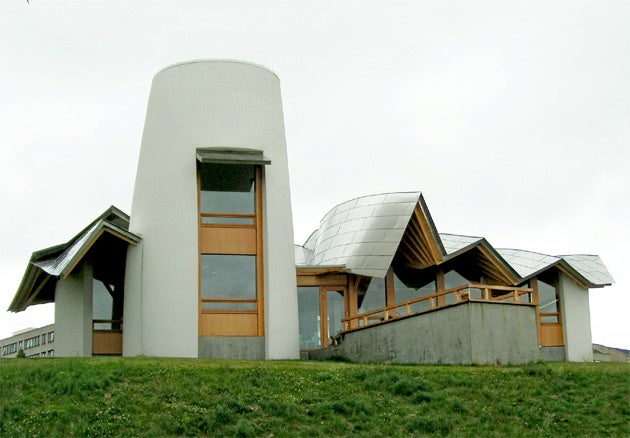Lord Rogers wins award for cancer centre
Architect triumphs with Stirling Prize for Maggie's Centre, just three months after Chelsea barracks rebuff

Your support helps us to tell the story
From reproductive rights to climate change to Big Tech, The Independent is on the ground when the story is developing. Whether it's investigating the financials of Elon Musk's pro-Trump PAC or producing our latest documentary, 'The A Word', which shines a light on the American women fighting for reproductive rights, we know how important it is to parse out the facts from the messaging.
At such a critical moment in US history, we need reporters on the ground. Your donation allows us to keep sending journalists to speak to both sides of the story.
The Independent is trusted by Americans across the entire political spectrum. And unlike many other quality news outlets, we choose not to lock Americans out of our reporting and analysis with paywalls. We believe quality journalism should be available to everyone, paid for by those who can afford it.
Your support makes all the difference.Three months after his design for the Chelsea barracks site was scuppered by Prince Charles, Lord Rogers has won a major architecture award for his work on a pioneering London cancer unit.
The Royal Institute of British Architects announced last night that he had won the Stirling Prize for Maggie's Centre, which the judges said "could be a private house in a Finnish forest instead of a health building on the Fulham Palace Road".
The centre, which is part of Charing Cross Hospital and opened to patients last year, cost £2.1m to design and build. Its focal point is a communal kitchen with a wood-burning stove. Rooms and treatment areas are separated by sliding bookshelves, screens or glass panels.
Ruth Reed, the president of RIBA, said: "The shortlist for this year's Stirling Prize was of an exceptionally high standard. In Maggie's Centre, we have a much deserved winner."
The judges said in a statement: "Rogers Stirk Harbour and Partners has produced a timeless work of architecture that not only distils the intentions of this brief, but expresses in built form compassion, sensitivity and a deep sense of our common humanity."
Accepting the £20,000 prize, Lord Rogers paid tribute to Maggie Keswick Jencks, a Scottish writer and designer who was diagnosed with breast cancer in 1993. In the 18 months before she died, she laid the foundations for a network of cancer- support centres which took up where orthodox medical treatment left off.
"It was a wonderful project," Lord Rogers said. "The one person who, of course, is missing from here is Maggie herself and I think she would be the person that certainly I'm thinking of."
The win represents a change in the fortunes of Lord Rogers, whose modernist plans for the £1bn redevelopment of the former Chelsea barracks, a chunk of prime real estate on the edge of Belgravia, were rejected in June by the site's owners, the investment arm of the Gulf state of Qatar.
Lord Rogers's design was scrapped by the Emirate after Prince Charles wrote privately to the Qatari Prime Minister, calling the architect's plans "unsympathetic" and "unsuitable".
Maggie's Centre brought Lord Rogers's partnership its second Stirling Prize: the first was in 2006 for Madrid's Barajas airport.
RIBA awards: Homes, bridge, hotel, and school honoured
A series of special awards were also announced last night by the Royal Institute of British Architects:
* Gap House, in London, by Pitman Tozer, won the Manser Medal for the best one-off house or housing scheme by an architect in the UK.
* El Ray, a private house in Kent, by Simon Conder Associates, won the Stephen Lawrence Prize for the best building with a budget under £1m.
* Castleford Bridge, in Yorkshire, by McDowell and Benedetti, won the RIBA CABE (Commission for Architecture and the Built Environment) Public Space Award for publicly accessible external space.
* The Midland Hotel, in Morecambe, won The Crown Estate Conservation Award for restoration of an architecturally significant building.
* Minster School, in Southwell, Nottinghamshire, by Penoyre and Prasad, won the RIBA Sorrell Foundation Schools Award.
Join our commenting forum
Join thought-provoking conversations, follow other Independent readers and see their replies
Comments